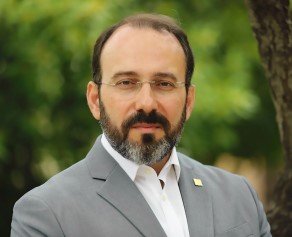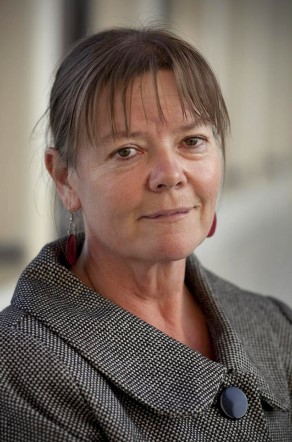Establishing a Centre of Excellence and Master’s Program of Global Health in Iran
 |
 |
| Prof. Dr. Amirhossein Takian | Prof. Dr. Anja Krumeich |
Professor Amirhossein Takian and Professor Anja Krumeich have been working together for years to set up this program and receive Erasmus+ grant despite all the major barriers such as the political sanctions imposed on Iran.
These two academics attended in a virtual and long-distance interview to briefly explain about establishing a Centre of Excellence and Master’s Program of Global Health in Iran and various issues around it as follows:
Main justifications
Professor Amirhossein Takian, who was attending in the interview from Tehran, emphasized on the needs of the Middle East and North Africa Region in this program and stated, “In terms of public health teaching and collaboration with other countries on communicable diseases, such as malaria, and primary healthcare (PHC) Iran has always been active and leading. The Centre of Excellence we are setting up is not specifically for Iran. That makes sense because a center for just one country is against the nature of global health. It has to be a truly global and continuous collaboration, specifically with prestigious European universities. The first three years of the grant are just the beginning. Ultimately, the entire region will benefit from a sustainable center that was our plan from the very start”.
What were the main barriers or challenges on the way?
Professor Anja Krumeich pointed to the present challenges and said,” It may sound easy, setting up a global health program in a foreign country, but each program requires different and specific content. Think for instance of the particular need with regard to environment and health. Climate change and health are not working out in the same way in Iran as they would in Europe. So you can have a course on climate change and health both in Europe and in Iran, but the solutions and challenges and possibilities will differ from country to country. The idea is to look at what kind of larger topics are important. How do you need to tackle the problems within the given particularities of the countries in the region we are focusing on?”
What issues will the program look into?
Referring to the major issues in the region, Professor Amirhossein Takian named insufficient institutionalization, disasters, both manmade like war and natural such as flooding and earthquakes and climate change as some of the major issues, and hoped that all these issues as well as other concerns will be included in the curriculum of the program.
Another intention of the program
One of the main intentions of the program, Krumeich said, is to learn from each other. She stated,” We want to build this together without this old-fashioned notion of capacity building, where European partners train and help others. It is not going to be like that in this partnership. We sometimes tend to forget that outside Europe there are traditions and institutions that have been there for a long time and that we can really collaborate with in a way that is beneficial for both. It is really important to have a regional center that is at the same time open enough to have collaborations with European and later maybe also with Northern American and African partners”.
Impact of sanctions on Iran
On the challenges that recent imposed sanctions on Iran brought about, professor Krumeich said, “The collaboration started already years ago when the situation of Iran was better and because we already had this very strong bond, we managed to go on. Also, I have to mention the president and rector of Maastricht University, who in spite of all kinds of political and economic pressures decided to go for signing the contract in spite of current geopolitical trends. We kept believing that in times where the formal channels are kind of abandoned for collaboration it is very important to keep open the more informal channels. Professor Takian commented by saying: “I appreciate the wisdom and support of the top leadership at UM, TUMS and the Ministry of Health and Medical Education of Iran, to be named among a few. We got support from many sides.”
Is Problem Based Learning implementable in the program?
In response to the question “Is it possible to implement Problem Based Learning (PBL) in the new master’s program or that it is too different from the current system?”, it turns out that Iran is ahead of PBL in the field of healthcare. According to Professor Takian, Iran has a unique healthcare system, in which public health and medical education and service delivery have been merged for over three decades.
In short, the officials of the two universities believe that the establishment of the center of excellence and the program will have an effective role in health promotion and health policy making in the region, and will increase the international collaboration of the countries in the region in the health-related fields.
To read the full text of the interview posted on the Maastricht University website, click here.

Your Comment :